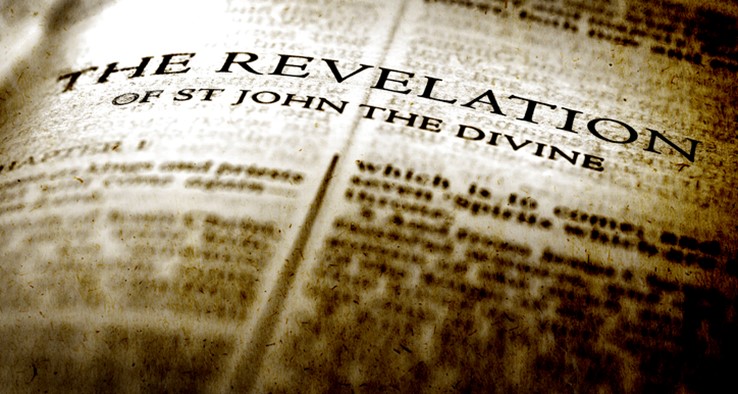
By Rev. Mark Creech
Christian Action League
March 29, 2024
More than a half-century ago my mother had a career in country music. She did quite well, having recorded a country version of the song, “The Night They Drove Ole Dixie Down.” She was extraordinarily talented and had an amazing stage presence that made her the opening act for many country music stars such as Ernest Tubb, Dolly Parton, Hank Williams, Jr., Charlie Pride, Merle Haggard, String Bean, Grandpa Jones, Bill Anderson, Tammy Wynette, Loretta Lynn, and others.
In addition to being rated #21 of the top female vocalists of 1972 with a single by Billboard magazine, she was also the recipient of two ASCAP (American Society of Composers, Authors and Publishers) awards that same year. She even made a guest appearance on the Grand Ole Opry, which was previously located in the famous Ryman Auditorium, in Nashville, Tennesee.
I was very proud of her, but I missed her and my Dad, so very much. My Dad was managing her career and traveling with Mom as she sang at clubs and stage shows across the country. So, both my parents were gone and on the road for most of my middle years and adolescence. I lived with my grandparents during this time, who now as an adult I realize made great sacrifices to care for me. I loved my grandparents and they were good to me. But more than anything in the world, I wanted to go home and live with my Mom and Dad.
Late in the evening, sometimes the phone would ring and it would be my parents calling. I would run to answer the phone, hoping to be the first to pick it up, where it sat atop an old forties-style radio in the hall, a relic of a bygone era. My grandparents’ phone was an older model and seemed a little heavier than the more modern ones. It had a thicker handset that could tire your hand holding it. But whenever I would hear my parents’ voices on the other end, I tried to keep them on the line as long as I could, even if it was a costly long-distance call, and even if holding the handset to my ear would make my hand tired.
The best phone calls were when Mama would say, “We’re coming home this week. We’ll be late, probably in the early morning hours when it’s still dark. You be ready for us to come by and pick you up.”
There was nothing so thrilling as the thought of going home and being with Mama and Daddy. Whenever I knew they were coming home, if it was at night, I might sleep in my clothes. My bed was pushed up against a second-story window looking down at the street below. The bed, which was an antique, had a large headboard high above the mattress, so I would sit on my knees to see over it and out the window. I watched and waited many times all night, yearning and looking out that casement to see their car turn onto Dobbs Street and at the house of my grandparents. When they arrived, they would sweep me up in their arms and we were happily homebound.
Our blessed Lord Jesus, risen from the dead, has now gone away to prepare a place for us in heaven. This world is not our home. Every Christian, born of the Spirit, loves the Lord and earnestly wants to be with him. In the book of Revelation, Christ has sent us his messenger to say he’s on his way to pick us up. Be ready to go, says the Lord. These words bring us hope and comfort, and one day Christ will appear and sweep us up in his arms and joyously take us home to live with him forever.
In the last six verses of the book of Revelation, it reads:
16 “I, Jesus, have sent my angel to give you this message for the churches. I am both the source of David and the heir to his throne. I am the bright morning star.”
17 The Spirit and the bride say, “Come.” Let anyone who hears this say, “Come.” Let anyone who is thirsty come. Let anyone who desires drink freely from the water of life. 18 And I solemnly declare to everyone who hears the words of prophecy written in this book: If anyone adds anything to what is written here, God will add to that person the plagues described in this book. 19 And if anyone removes any of the words from this book of prophecy, God will remove that person’s share in the tree of life and in the holy city that are described in this book.
20 He who is the faithful witness to all these things says, “Yes, I am coming soon!”
Amen! Come, Lord Jesus!
21 May the grace of the Lord Jesus be with God’s holy people.
Since we’ve come to the end of Revelation, perhaps it would be helpful to summarize as succinctly as possible what this prophetic book has shown us.
The apostle John, exiled to the island of Patmos for proclaiming the Gospel of Christ, receives divine revelations from God. These visions are to be conveyed as letters to seven churches in Asia Minor, addressing their conditions and calling for repentance. The book unfolds as a timeless message, speaking to the needs of churches throughout history.
Through heavenly scenes and symbolic imagery, John unveils God’s plan for the end times, symbolized by the opening of seals, blowing of trumpets, and pouring out of bowls, each bringing judgments upon the earth for sin. Yet amidst the chaos, there is a vision of victory as God seals his servants and a multitude from every nation worships before his throne.
The narrative progresses with symbolic representations, including a woman who represents God’s final dealings with Israel, a dragon that represents the Devil, and a Beast that embodies the Antichrist. The culmination is about a colossal battle that occurs between good and evil, leading to Christ’s literal and triumphant return. The fall of Babylon, the defeat of Satan, and the establishment of Christ’s reign on Earth are foretold.

After a thousand-year reign of peace and unprecedented prosperity, a portion of humanity still rebels against the Lord, and the revolt is quickly quashed. Afterward, the faithful enter into a new heaven and a new earth, dwelling with Christ for eternity.
The epilogue in Chapter 22 is a fervent invitation to come to Christ and find salvation.
The book of Revelation declares the future of the redeemed is filled with hope, happiness, and heaven. The saved, like all the rest of humanity, may have to suffer in this life from physical pains, chronic illnesses, grief from diverse losses, traumas, and financial hardships. Because of their faithfulness to Christ, they may have to endure social isolation, marginalization, oppression, and persecution. Nevertheless, for them, there is the sure promise that their future is incomparably radiant with splendors so remarkable they can hardly imagine them (I Corinthians 2:9).
Those who are disobedient to God’s offer of salvation in Christ, however, are subject to the troubles and disappointments of this life, some more than others, but still all. In the end, they have nothing to look forward to beyond the grave, but misery and never-ending fiery agonies of the soul.
On whose authority is this future foretold? It is none other than the same person whose identity and authority are mentioned in the first and last chapters of the book. Both chapters describe Jesus’ self-identification using titles such as the Alpha and Omega, the First and the Last, the Beginning and the End, emphasizing his eternal nature and supreme authority. Additionally, they depict Jesus as the root and descendant of David, affirming his Messianic lineage. Moreover, the Bright Morning Star in Revelation chapter 22 seems to echo Christ’s dazzling appearance in chapter 1.
Just a few years back, Hollywood unveiled “Don’t Look Up,” a film featuring Leonardo DiCaprio and Jennifer Lawrence, among other acclaimed actors. Directed by Adam McKay, this satirical comedy-drama follows two astronomers who stumble upon a dire revelation: a comet hurtling towards Earth. Despite their frantic attempts to alert the public and government officials, their warnings are met with skepticism, denial, and even political suppression.
While intended as a commentary on contemporary issues like climate change denial and political polarization, I couldn’t help but draw parallels between the film’s plot and biblical themes. I thought of the “Bright Morning Star,” the Lord Jesus Christ, on a collision course with a world engaged in a hostile insurrection against its Sovereign Creator. Over and again, the message to prepare for Christ’s return is heard from faithful preachers and evangelists, read in the Bible, proclaimed on radio and television programs, posted online and social media, and individual believers often share their personal experiences related to their faith and anticipation of Christ’s return. Yet, the response is mostly dismissal, doubt, and disbelief. Still, the Lord pleads for people to come to him in repentance and faith.
Before the book of Revelation ends, people are invited to come four times.
The Spirit says, “Come.” The work of God’s Holy Spirit is to convince people of their sins, and judgment, pointing them to the saving grace of God in Christ.
The Spirit of God knows the best way to speak to each person. As someone once said, with some people the Spirit of God may, figuratively speaking, need only a pop gun to turn them around. They need only a gentle touch. Such was the case with Lydia, of whom the Bible says God simply “opened her heart” to receive the message (Acts 16:11-15). Others need an elephant gun, like the apostle Paul on the Damascus road, a terrible persecutor of the Church, who was dramatically converted to Christ (Acts 9:1-19). God had to knock him off his horse and blind him before he saw the truth. Some people come easily to Christ, while others need convincing by harsher means.
The “Bride,” the Church says, “Come.” This is the primary mission of the New Testament Church. There are innumerable methods the Church employs to invite people to trust Christ: sermons, Bible studies, educational programs, personal evangelism, creative arts, helping the poor and needy, and social engagement in the public square.
Some pastors and their churches opt to steer clear of politics, fearing it may alienate people. However, this disengagement has unfortunately allowed morally questionable individuals to fill the void and wrongly influence and codify legislation. Measuring political initiatives against biblical standards is vital for the Church to fulfill its role as “salt and light,” as commanded by Christ. While those whose hearts are at enmity with God can find just about any reason to reject the Lord and criticize his followers, engaging in cultural and societal affairs doesn’t inherently drive people away from the Lord. Instead, it provides a platform for presenting Christ to the masses.
Let anyone who hears this blessed message of hope and deliverance, say “Come.” In the Gospel of John, chapter 4, verses 4 through 42, Jesus meets with a Samaritan woman at a well and offers her living water. Without ever having met her before or anyone who knew her, Jesus revealed he knew everything about her life: her past marriages and her current relationship. The woman suddenly realized Jesus was a prophet and briefly discussed worship with him. Jesus declared to her that he was the Messiah. She believed and was so excited that she forgot to take her water jar with her, as she bolted from the well to run into her hometown and tell everyone of her encounter with Jesus. She said to the people in her village, “Come and see a man who told me everything I ever did!” (vs. 29). Because of her witness many others believed in Christ.
“Come, come, come, this must be the Savior of the world, the Messiah,” she was telling everyone. Indeed, says the Lord Jesus in Revelation chapter 22 and verse 17, “Let anyone who hears this say, ‘Come.’” Psalm chapter 107 and verse 2, admonishes: “Has the Lord redeemed you? Then speak out!”
Jesus says let anyone who is thirsty, parched, and dry: mentally, emotionally, spiritually, let him come to me. Jesus promised, “Those who drink the water I give will never be thirsty again. It becomes a fresh, bubbling spring within them, giving them eternal life” (John 4:14).
The late W. A. Criswell, in his commentary on Revelation, has beautifully written:
“When God says, ‘Let him,’ where is the power that can interdict God’s mandate? ‘Let him.’ When God said ‘Fiat lux,’ ‘Let there be light,’ who could deny the light that burst into this darkened world? When God says, ‘Let him,’ who can deny the humblest, feeblest, most timid of sinners coming to the Lord to be saved? Who could interdict? Who could intervene? Could all the power of hell? Could Satan, could the devil, could evil angels so black and dark, could doubt and fear, could anything stand between us and God? When God says, ‘Let him come,’ the Almighty Sovereign of heaven and earth means, ‘Let him come.’”
Sadly, many people feel that they are too sinful to come. Jesus says that anyone who humbly comes to him, he will in no way reject them (John 6:37).
Other people erroneously feel they are too good to come. They don’t realize they are sinners desperately in need of forgiveness and reconciliation with God. The Lord says to them, “‘Come now, let’s settle this…Though your sins are like scarlet, I will make them as white as snow. Though they are red like crimson, I will make them as white as wool’” (Isaiah 1:18).

Finally, Jesus gives an incredibly solemn warning. He cautions never to tamper with the content of the book of Revelation by either adding or subtracting from it. Furthermore, since this prophetic document is tied to both the Old and New Testaments, the warning would extend to the entire Bible. To do so would be courting disaster, more specifically, the loss of one’s soul.
In “The Revelation of Jesus Christ,” prophecy expert, John Walvoord penned:
“Though frequently in the Bible there are other warnings against tampering with the Word of God, this is among the most solemn (cf. Deut. 4:2; 12:32; Prov. 30:6; Rev. 1:3). No one can dare add to the Word of God except in blatant unbelief and denial that the Word is indeed God’s own message to a man. Likewise, no one should dare take away the words of the Book, since to do so is to do despite to the inspired Word of God. What a solemn warning this is to critics who have tampered with this book and other portions of Scripture in arrogant self-confidence that they are equipped intellectually and spiritually to determine what is true and what is not true in the Word of God. Though not stated in detail, the point of these two verses is that a child of God who reveres him will recognize at once that this is the Word of God.”
Years ago, during my early days as a Christian in high school, I encountered a unique situation regarding the Bible. I was dating a girl whose family followed a religious group that provided them with a distinct translation of Scripture, tailored to their denomination’s beliefs. One day, her father read John 1:1 to me from their denominational Bible, stating, “In the beginning was the Word, and the Word was with God, and the Word was a god.” Instantly recognizing the discrepancy, I spoke up, arguing that the Bible declares Jesus as God in that same verse, and not “a god.” Their Bible had completely modified the text.
This encounter shed light on the practice of certain religious groups altering Bible texts to suit their doctrines. Some even incorporate extra-biblical revelations or additional books, claiming they are essential for understanding Scripture fully. Similarly, the Queen James Bible, introduced in 2012, reinterprets passages to support LGBTQ+ rights, exemplifying this trend.
However, such actions contradict Christ’s clear admonition against amending the Holy Scriptures. To tamper with God’s Word by changing or revising it constitutes a serious offense, as it distorts the truth and undermines the integrity of Scripture. This is a very serious sin!
“Yes, I am coming soon!” says Jesus.
I would like to conclude this commentary with the eloquent words of M.R. DeHaan from his book, “Revelation”:
“The night is dark, and the world seems to be in the throes of death. Humanity is engulfed in turmoil and confusion. The dark clouds of coming judgment and distress are upon the horizon, and the rumblings of coming judgment may be heard. Men everywhere are wondering about the future, and some are despairing. One of these days or nights, however, while the world is occupied with its frivolities and empty pleasures and scoffing at the Word of God, a form will rise above the lashing waves, as on Galilee, to vindicate forever the devotion and patient watching of that remnant in all ages who have not abandoned the hope of his coming again, and take them home to the realms of bliss where sorrow and sighing, loneliness and heartache will never be known and where, with love ones gone before, they shall rest forever in the perfect service of their Lord.”
O yes, how the children of God, earnestly wait, watch, and survey the horizon from life’s window, away from their real home, wanting to be with the One who loves them supremely. The most passionate longing of their heart is, “Come, Lord Jesus” (Revelation 22:20). Come and sweep me up and take me home.
“May the grace of the Lord Jesus be with God’s holy people” (Revelation 22:21).
